Reimer-Tiemann reaction introduces an aldehyde group on to the aromatic ring of phenol, ortho to the hydroxyl group. This reacrtion involves electrophilic aromatic subsititution. It is a general method for the synthesis of subsituted salicyladehydes as depiced below:
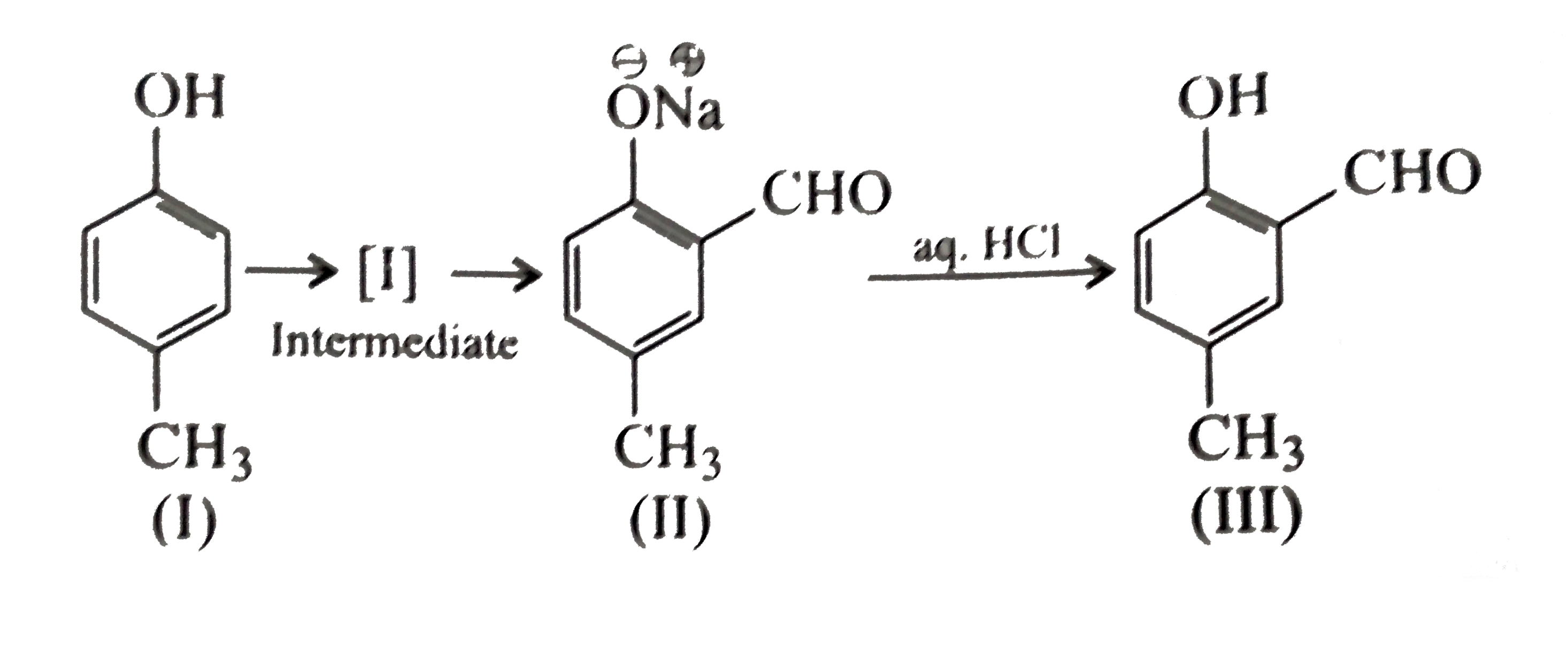
The electrophile in this reaction is:
:CHCl
⋅CHCl2
:CCl2
⋅CCl3
The correct Answer is:C
Electrophile is : CCl2.
Topper's Solved these Questions
- ALCOHOLS AND PHENOLSBOOK - DINESH PUBLICATIONCHAPTER - ALCOHOLS AND PHENOLSEXERCISE - Straight Objective Type
24 Videos
- ALCOHOLS AND PHENOLSBOOK - DINESH PUBLICATIONCHAPTER - ALCOHOLS AND PHENOLSEXERCISE - Assertion-Reason Type
20 Videos
- ALCOHOLS AND PHENOLSBOOK - DINESH PUBLICATIONCHAPTER - ALCOHOLS AND PHENOLSEXERCISE - MCQB
74 Videos
- ALDEHYDES AND KETONES BOOK - DINESH PUBLICATIONCHAPTER - ALDEHYDES AND KETONES EXERCISE - Interger
5 Videos
Similar Questions
Reimer -Tiemann reaction introduces an aldehyde group on to the aromatic ring of phenol, ortho to the hydroxyl group. This reaction involves electrophilic aromatic substitution. This is a general method for the synthesis of substituted salicyladehydes as depicted below.
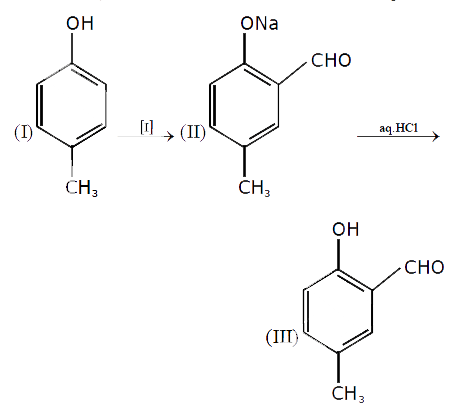
The electrophile in this reaction is
View SolutionReimer -Tiemann reaction introduces an aldehyde group on to the aromatic ring of phenol, ortho to the hydroxyl group. This reaction involves electrophilic aromatic substitution. This is a general method for the synthesis of substituted salicyladehydes as depicted below.
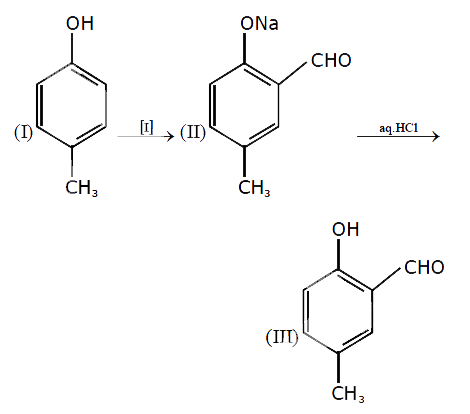
The structure of the intermediate I is
View Solution
Knowledge Check

Reimer-Tiemann reaction introduces an aldehyde group on to the aromatic ring of phenol, ortho to the hydroxyl group. Thi reaction involves electrophilic aromatic substitution. It is a general method for the synthesis of substituted salicylaldehydes as depicted below:
Q. The electrophilic in this reaction is-A:CHClB.⊕CHCl2C:CCl2D∗CCl3Reimer-Tiemann reaction introduces an aldehyde group, on to the aromatic ring of phenol, ortho to the hydroxyl group. This reaction involves electrophilic aromatic substitution. This is a general method for the synthesis of substituted salicyladehydes as depicted below.
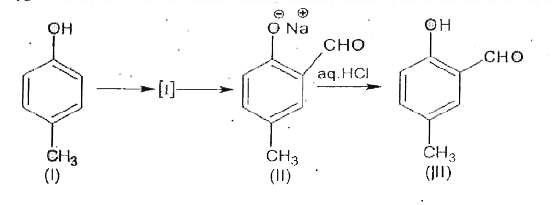
The electrophile in this reaction isA: CHClB+CHCl2C:CCl2DCCl3Reimer-Tiemann reaction introduces an aldehyde group on to the aromatic ring of phenol, ortho to the hydroxyl group. This reacrtion involves electrophilic aromatic subsititution. It is a general method for the synthesis of subsituted salicyladehydes as depiced below:
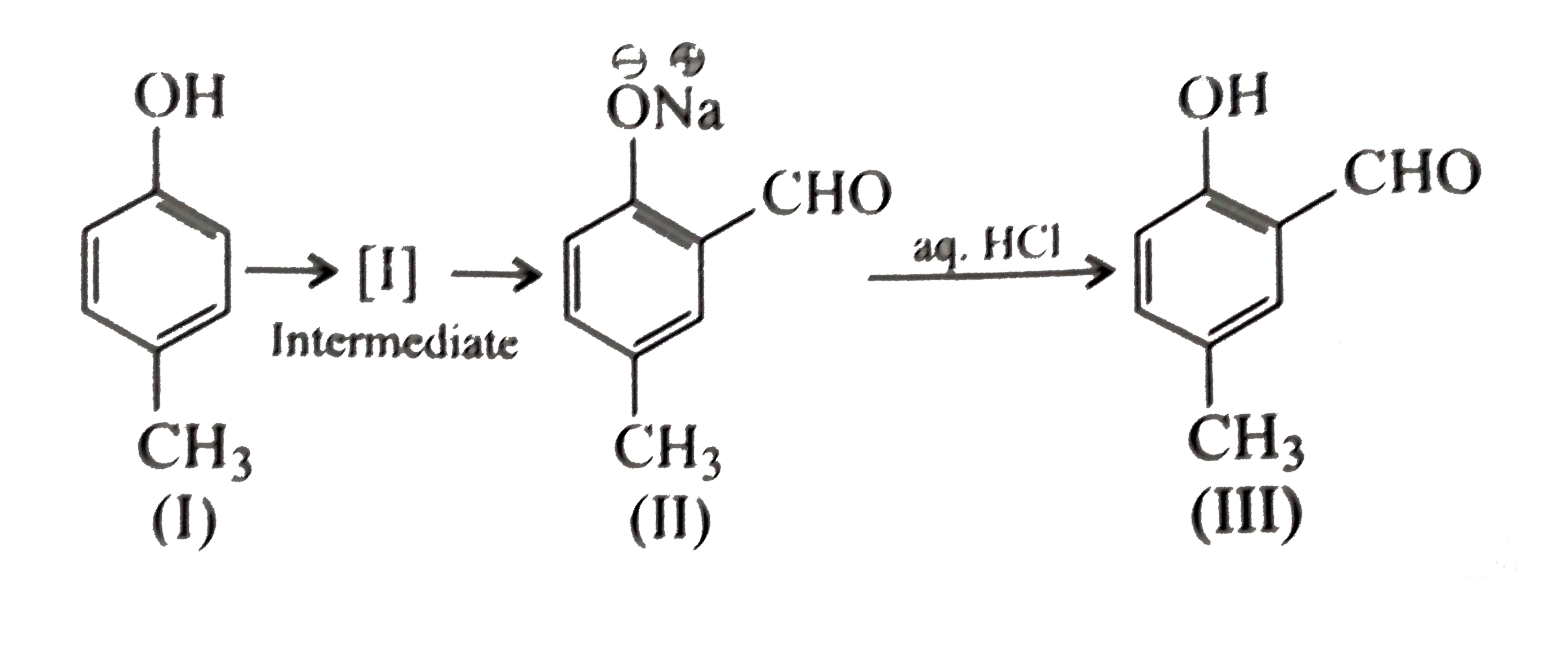
The structure of the intremediate (I) is:A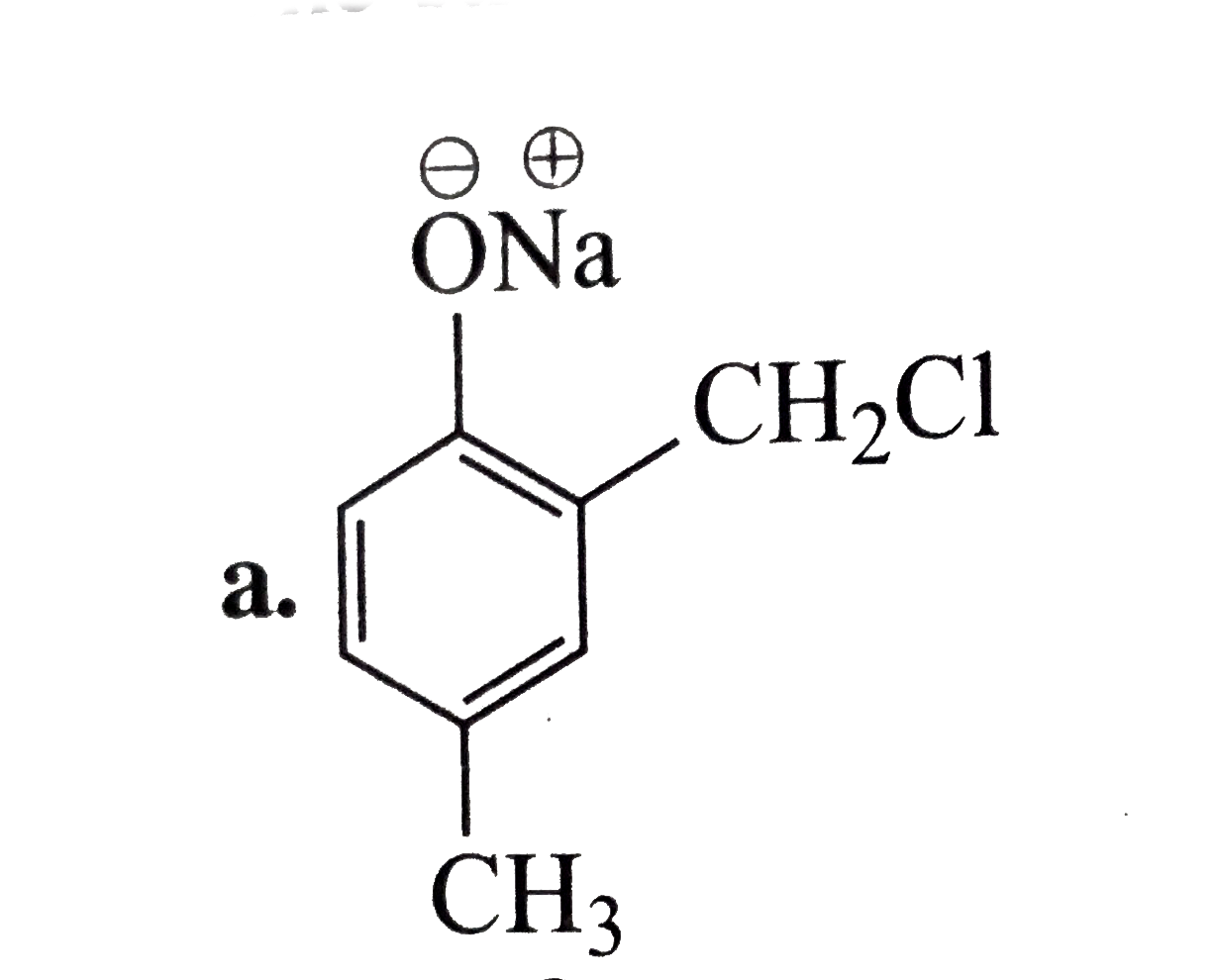 B
B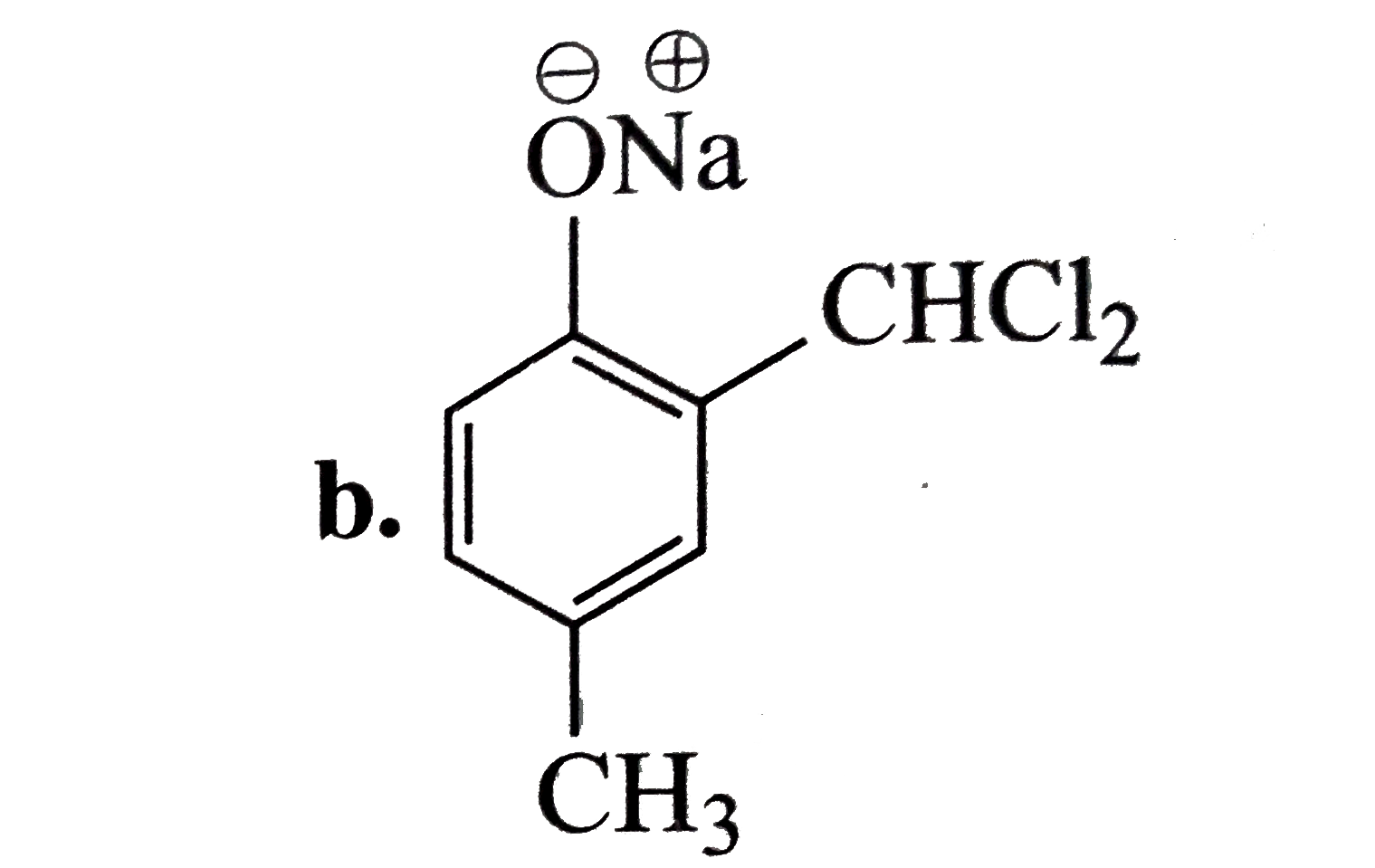 C
C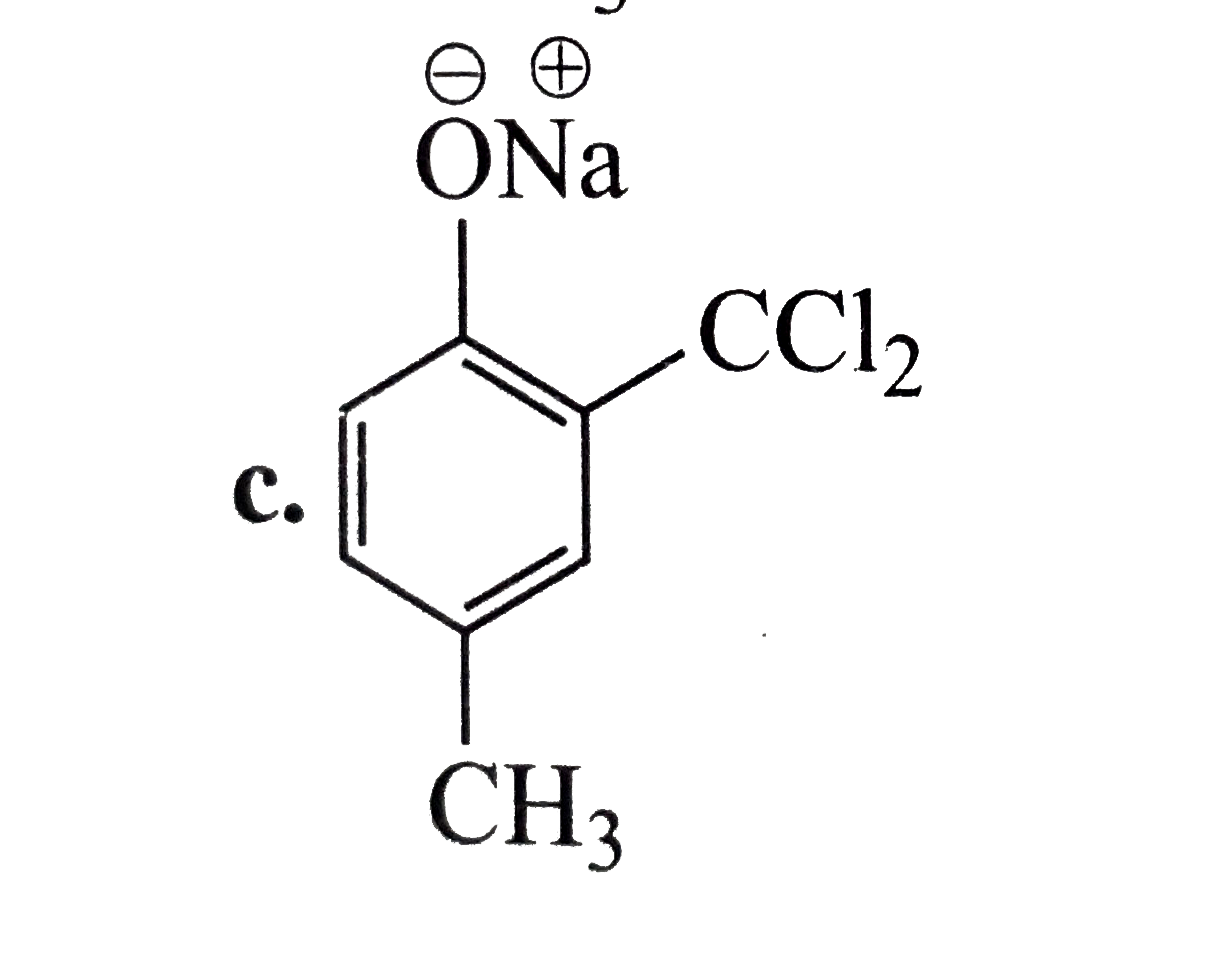 D
D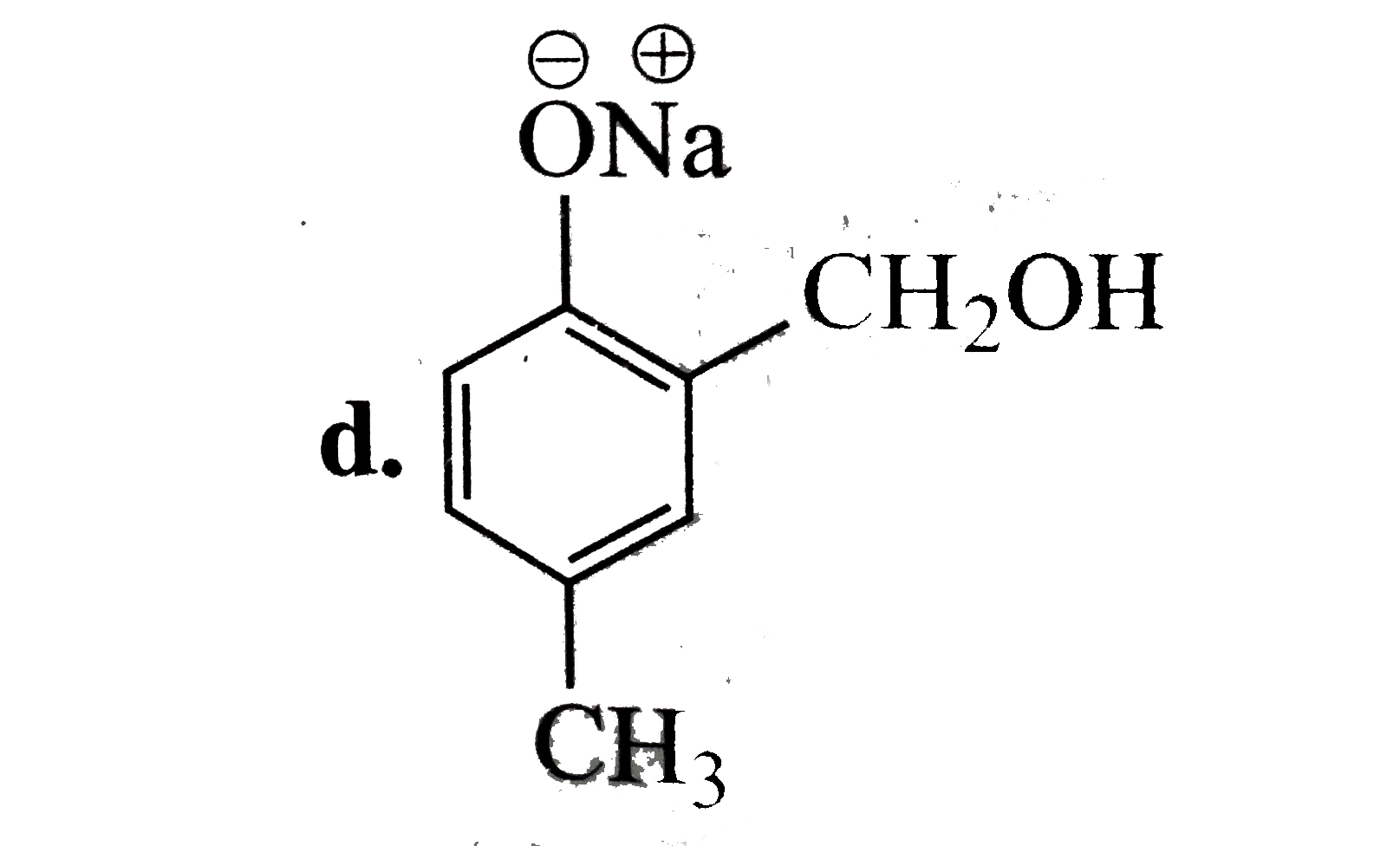
Reimer-Tiemann reaction introduces an aldehyde group on to the aromatic ring of phenol, ortho to the hydroxyl group. This reacrtion involves electrophilic aromatic subsititution. It is a general method for the synthesis of subsituted salicyladehydes as depiced below:
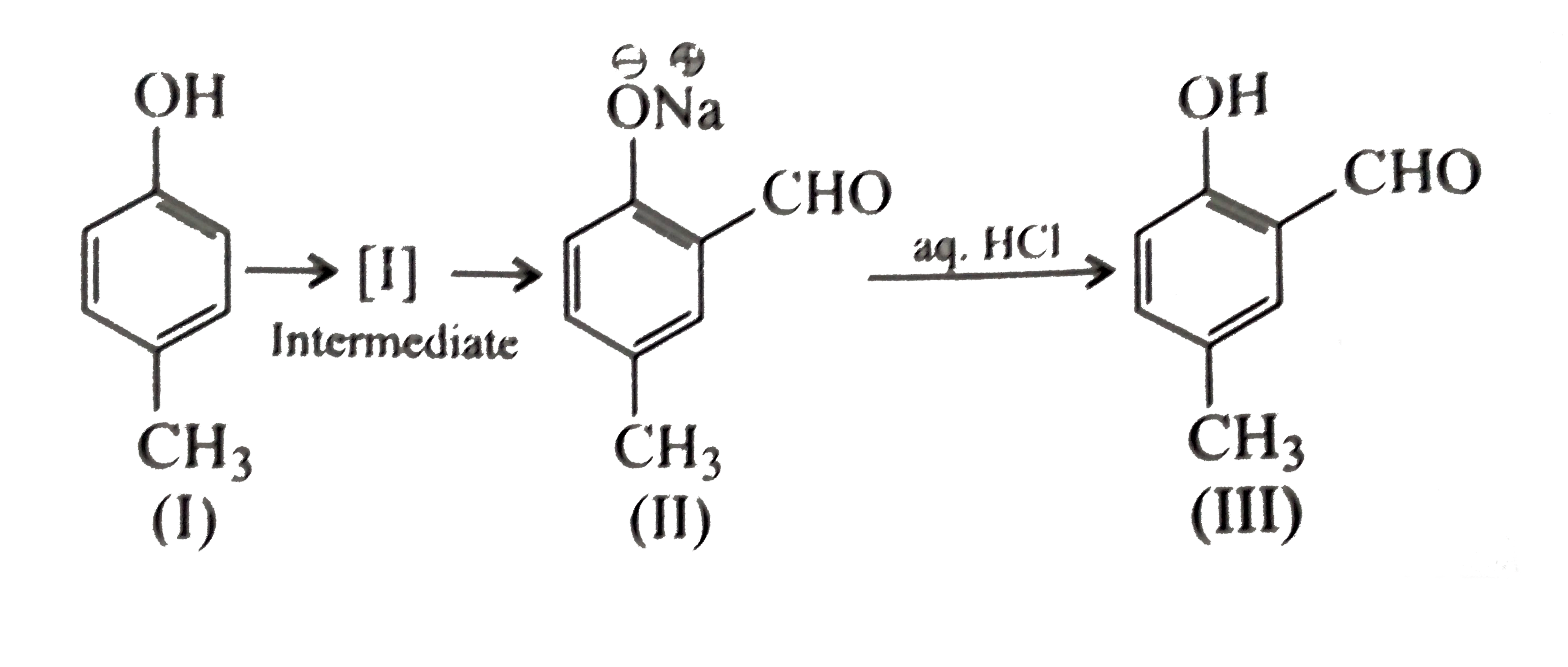
Which one of the following reagents is used in the above reaction ?
View Solution
Reimer-Tiemann reaction introduces an aldehyde group on to the aromatic ring of phenol, ortho to the hydroxyl group. Thi reaction involves electrophilic aromatic substitution. It is a general method for the synthesis of substituted salicylaldehydes as depicted below:
Q. The structure of intermediate (I) is:
View SolutionReimer-Tiemann reaction introduces an aldehyde group, on to the aromatic ring of phenol, ortho to the hydroxyl group. This reaction involves electrophilic aromatic substitution. This is a general method for the synthesis of substituted salicyladehydes as depicted below.
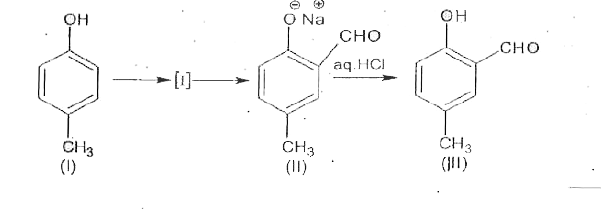
The structure of the intermediate I is
View Solution
Reimer-Tiemann reaction introduces an aldehyde group on to the aromatic ring of phenol, ortho to the hydroxyl group. Thi reaction involves electrophilic aromatic substitution. It is a general method for the synthesis of substituted salicylaldehydes as depicted below:
Q. Which one of the following reagents is used ini the above reaction?
View SolutionRiemer-Tiemann reaction intorduces an aldehyde group, on to the aromatic ring of phenol, ortho to the hydroxyl group. This reaction involves electrophilic aromatic substitution. This is a general method for the synthesis of substitued salicyladehydes as depicted below.

The structure of the intermediate I is:
View Solution
